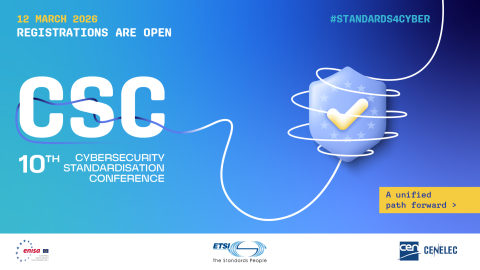Publication date: February 6, 2026
Cybersecurity certifications are designed for IT professionals, including system and network administrators, security specialists, engineers, and those aspiring to these roles, to validate their knowledge and practical skills in protecting against digital threats. The certification also covers ICT products, services, and processes, and aims to inform consumers about the level of digital security and support Polish companies in European markets.
On August 28, 2025, the Act of June 25, 2025, on the national cybersecurity certification scheme entered into force, implementing Regulation (EU) 2019/881 of the European Parliament and of the Council of April 17, 2019, on ENISA (the European Union Agency for Cybersecurity) and cybersecurity certification in information and communication technologies, and repealing Regulation (EU) No 526/2013 (Cybersecurity Act) (OJ L 151, 7.06.2019, p. 15 and OJ L 2025/37, 15.01.2025).
More
Publication date: February 6, 2026
In cross-border trade, businesses often opt for alternative dispute resolution (ADR) methods, such as international arbitration. This solution ensures, above all, a more neutral, faster, more flexible, and highly professional procedure. Naturally, in such a situation, the parties do not want to be at the mercy of a domestic court, foreign laws, unfamiliar traditions, doctrines, and established interpretations. Hence the need to submit the dispute to resolution by one or more arbitrators appointed by the parties from among global experts in their respective fields of business. The fundamental condition for such a solution is an arbitration agreement (the terms “arbitration court” and “arbitral tribunal” are often used interchangeably and refer to the same body resolving disputes through arbitration), included either in the initial agreement or in a separate agreement between the parties, which specifies the legal relationship from which the dispute arises or may arise. Obtaining an arbitration award does not, however, definitively conclude the case, but rather initiates the sometimes problematic issue of enforcing such an award in domestic courts. A foreign creditor who obtains an arbitration award that obligates a Polish entity to pay can generally expect its recognition and enforcement in a Polish domestic court.
More
Publication date: February 6, 2026
Some hard numbers reveal the paradox: the EU has a highly developed research sector vs. the EU is a region with a challenging commercialization environment compared to other global leaders.
Biotechnology is one of the fastest-growing research and innovation sectors in the world today, and the European Union plays a significant role in this process. Over the past decade, the number of biotechnology researchers in the EU has nearly doubled, from approximately 42,000 in 2012 to over 81,000 in 2021, and the share of employment in this field has reached 17.2% of total R&D employment. These figures confirm that Europe has a strong scientific base and is systematically building capacity in technologies critical to health, industry, and food security.
More
Publication date: February 6, 2026
We have been very pleased to contribute to BioLawEurope comparative survey on Digital Therapeutics and its legal status across Europe. KG LEGAL Kiełtyka Gładkowski prepared the entry on Poland and its standing on DTx.
The results can be seen here:
https://www.biolaweurope.com/blog
Digital Therapeutics ( DTx ) is evidence-based clinical software that prevents, manages, or treats diseases through digital programs installed on smartphones, computers, or other devices. Unlike typical health apps, these apps must undergo clinical trials and often meet medical device criteria.
More
Publication date: February 5, 2026
We are pleased to announce that we will be participating in the 10th European Cybersecurity Standardization Conference, which will take place on March 12, 2026. The conference is jointly organized by the European standards organizations CEN, CENELEC, and ETSI, in cooperation with ENISA, the European Union Agency for Cybersecurity.
What is ENISA?
ENISA – The European Union Agency for Cybersecurity is a specialized European Union agency responsible for supporting member states, EU institutions, and the private sector in improving cybersecurity in Europe. Its mandate was strengthened under the Cybersecurity Act, which made ENISA a permanent pillar of the EU’s digital security architecture and entrusted it with a key role in the development of the European cybersecurity certification framework.
More

